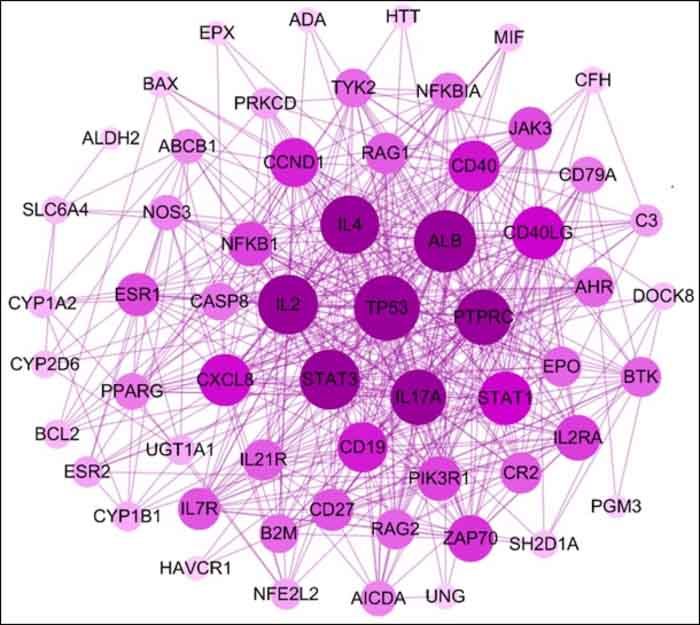Research at New York Medical College has discovered a plant compound
called formononetin with the potential to reduce the IgE allergic response.
The compound is found in foods and herbs including red clover and green
beans. Future potential could see formononetin to reduce allergic
reactions and anaphylaxis. Thanks to Snack Safely for sharing this
information.
Plant Compound Shows Promise for Alleviating Food Allergies
ByNews Wire ~ 3rd Party Press Release

Study uncovers new drug targets for treating other allergic disorders
Philadelphia (Friday, April 1, 2022) — Researchers combined advanced computational methods with experimental studies to gain new insight, at the cell level, into how the plant compound formononetin might be used to treat food allergies. With nearly 10% of the world population affected by food allergies — which are sometimes life-threatening — new treatments are critically needed.
Formononetin is found in plants and herbs such as red clover and green beans and has been shown to have anticancer properties. It is a phytoestrogen, meaning that it has a structure similar to the hormone estrogen and can bind to the body’s estrogen receptors.Click to visit sponsor
“Our findings show that formononetin is a particularly good therapeutic candidate for treating food allergies,” said Ibrahim Musa, a doctoral candidate in pathology, microbiology and immunology at New York Medical College. “Our research also revealed new mechanisms and targets that can be utilized to design future drugs for treating food allergies and other allergic disorders or to prevent severe anaphylaxis seen in allergic diseases.”
Musa will present the new research at the American Society for Biochemistry and Molecular Biology annual meeting during the Experimental Biology (EB) 2022 meeting, to be held April 2–5 in Philadelphia.
Food allergies occur when the immune system treats a food or something in a food as a threat. This causes the immune system to produce immunoglobulin E (IgE) antibodies that react to the food and can cause allergy symptoms such as hives, asthma, itching, trouble breathing or diarrhea.
In previous studies, the researchers identified formononetin as a potential therapeutic for allergies because it decreased IgE production. To find out more, the researchers turned to an approach known as systems pharmacology. This involved using data from publicly available databases to identify gene and protein targets regulated in food allergy and mast cells diseases. Mast cells also play an important role in IgE-mediated allergic diseases.Click to visit sponsor
Once they identified gene and protein targets, the researchers validated them using cultured cell lines that are commonly used in allergy studies. These cell experiments showed that formononetin did influence the expression of gene and protein targets identified using systems pharmacology.
“Our study demonstrates that system pharmacology can be used to predict drug/ compound–target interaction,” said Musa. “What’s more, the mechanism of action identified for formononetin is also important for other allergic diseases such as allergic asthma and hay fever. This suggests that formononetin or other therapeutic candidates that decrease IgE production could be useful for treating these diseases.”
The researchers have developed a mouse model of peanut allergy that they plan to use to study formononetin and identify potential side effects.

Click to visit sponsor
About Experimental Biology 2022
Experimental Biology (EB) is the annual meeting of five scientific societies bringing together thousands of scientists and 25 guest societies in one interdisciplinary community. With a mission to share the newest research findings shaping clinical advances, EB offers an unparalleled opportunity to tap into the latest research in anatomy, biochemistry, molecular biology, investigative pathology, pharmacology and physiology. The Experimental Biology 2022 meeting will be held April 2–5 at the Pennsylvania Convention Center in Philadelphia. www.experimentalbiology.org #expbio
About the American Society for Biochemistry and Molecular Biology (ASBMB)
ASBMB is a nonprofit scientific and educational organization with more than 12,000 members worldwide. Founded in 1906 to advance the science of biochemistry and molecular biology, the society publishes three peer-reviewed journals, advocates for funding of basic research and education, supports science education at all levels, and promotes the diversity of individuals entering the scientific workforce. www.asbmb.org
Source: Plant compound shows promise for alleviating food allergies — Experimental Biology News Release


Leave A Comment